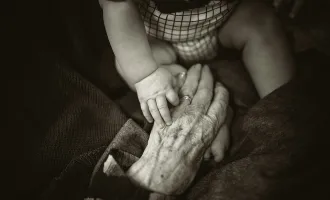Dental Doc Is Nonsense
If you’re in the dental profession, you’ve probably heard about a documentary called “Root Cause,” which was released on Netflix earlier this year. It features doctors and dentists around the world claiming that root canals lead to system-wide medical problems.
As a second-year dental student preparing to treat patients in just a few months, I watched the hour and fifteen minute long documentary to prepare for questions I might encounter from patients.
“Root Cause” is terrible and insulting to the dental profession. It would be impossible for me to debunk every single ridiculous claim that was made by this film, but I narrowed it down to three.
1) The best treatment for an infected tooth is extraction, according to the film’s Dr. David Minkoff, MD. He claims that “there is no branch of medicine that exists where a dead organ is left in except in dentistry, where the root canal is left in.” In order to discuss this accusation, it’s important to understand exactly what a root canal treatment is.
According to the film, a root canal treatment is when dentists “drill into your tooth, extract the root, fill it with gutta percha, and you’re on your merry way.” This description is grossly overly simplistic. The American Association of Endodontists outlines the entire process step by step on their website: treatments actually involve cleaning the soft tissue inside the root canal to remove inflamed or infected tissue, cleaning and disinfecting the tooth, and then filling it with biocompatible material. .
This is the preferred treatment for an infected tooth. Patients who do not want to undergo the process have the tooth extracted to remove the infection. However, extractions also pose a risk because they are more painful, expensive, time consuming, and can cause patients to lose the ability to eat properly due to loss of bone structure that originally supported the missing tooth.
Insinuating that patients require an extraction for every infected tooth is completely inaccurate. If you had an ear infection, would you cut your ear off?
2) “97% of breast cancer patients have undergone root canals on the same side as their cancer.” I scoured the internet for hours attempting to find any statistic that linked root canals and cancer and I found nothing. Not a single paper has been published that suggests that root canals cause cancer. This documentary might as well have claimed that 97% of the cancer patients had eaten chocolate at some point in their lives. The doctors in this documentary apparently do not understand that correlation is not the same thing as causation.
So where did this statistic come from? Statistically, women are most likely to get breast cancer between the ages of 30 and 70. It’s likely that most women in this age range that have breast cancer have also had root canal treatments. Still, these statistics don’t imply that root canals necessarily cause breast cancer. And they certainly don’t suggest a value as high as 97%.
3) “Every tooth connects up energetically through the meridian system to certain organs and glands.” According to this system, the wisdom teeth are linked up to the small intestine and the heart. The molars are linked to the breast, thyroid, pancreas, and spleen. The “experts” in this film claim that if you are given a root canal treatment on one of the molars, you are likely to get breast cancer because no amount of dentistry can effectively prevent bacteria from traveling down to your breast.
As a student in health care, I wondered how I could have gotten through anatomy and physiology courses without knowing that the meridian system connects the oral cavity to the rest of the body. Why hadn’t any of my professors mentioned it?
The meridian system turns out to be based on traditional Chinese medicine. Basically, the meridian system is a path through which the life-energy known as “qi” flows. Through this path, infections can travel and cause other organs to become infected.
Modern-day health professionals know that the lymphatic and venous systems are actually the pathways through which infections travel within the body.
Despite numerous claims regarding the authenticity of meridians, there has been no convincing scientific evidence that suggests they exist. It is shocking that trained health professionals who claim to care about the health of their patients would propagate information that has no basis in medical or dental science.
The basis of the film’s claims is based on the work of Dr. Weston A. Price, the key propagator of the “focal infection theory”. This is a nearly 100 year-old theory that is based on Dr. Price’s research regarding root canal treatments. According to his work, dental restorations such as root canal treatments were the cause of other systemic conditions.
The focal infection theory was widely criticized when it was proposed in the 1930s due to lack of controls, poor design, and bias. By the 1950s, the Journal of the American Dental Association shifted the standard of practice back to endodontic treatment that prioritized saving infected teeth. In 1965, the true science behind treating infected root canals was finally discovered. These techniques have evolved into modern-day procedures that more effectively disinfect root canals than the techniques performed a century ago.
So why is Netflix, a service that has over 58 million subscribers in the United States alone, spreading information that dentists and scientists know to be false? The American Dental Association (ADA), American Association of Endodontists (AAE), and American Association of Dental Research (AADR) have all made requests to remove the film. Netflix has not responded to these requests and the film is still available for viewing.
However, Netflix has a history of releasing films that spread misinformation to their audiences. In 2017, a pro-vegan documentary was released titled “What the Health”. This documentary made the assertion that eggs are as bad for you as cigarettes. It drew a large amount of criticism from medical professionals.
There is one sentiment of “Root Cause” that I agree with and that is the oral-systemic connection. However, the makers of the film use this connection in a poor attempt to validate the meridian system.
Many systemic problems do indeed manifest themselves in the mouth, but the disconnect between the oral cavity and the rest of the body still exists in modern medicine. When it comes to dental medicine, people assume that the advice of a dental professional is limited to, “Just floss and brush your teeth twice a day.”
“Today, nearly all American dental and medical schools remain organizationally separate,” wrote Mary Otto in her book Teeth: The Story of Beauty Inequality, and the Struggle for Oral Health in America. “The oral cavity…is inhabited by organisms as numerous as the citizens of earth. The mouth sustains life. The digestive process begins there. It’s glands and ducts produce disease-fighting saliva and lymph.”
Yet, our health care system is still set up as though the mouth is separate from the rest of the body. Anyone who knows about the oral health epidemic that is currently plaguing the United States, knows that dentists and physicians must work together to remove barriers to caring for patients.
Oral health must be integrated into overall health, but the mainstream media must also protect the population by preventing the spread of misinformation. Netflix’s “Root Cause” is dangerous because it insinuates that dentists are unable to care for their patients and they are unknowledgeable about the effects their work has on other parts of the body.
So what will I tell my patients when they ask, “The doctors on ‘Root Cause’ say that root canals cause cancer. How do you know this root canal won’t kill me? Are you just trying to make money? Aren’t you just a dentist?”
It’s difficult for me to know what to say. Dentists and oral health professionals have long been met with the attitude that their advice on oral and systemic health is secondary to that of a physician. They are often stereotypically depicted as providing unnecessary treatments to make money. I’m still trying to figure out how to explain that the cost of modern dentistry isn’t cancer or death, and it certainly isn’t based on pseudoscience from the same decade as World War I. Dentistry is a health science based on evidence and proper research. It’s an art form that takes years of practicing mechanical and medical skill. I suppose I am “just a dentist” but my methods for treating your infected tooth are the only methods proven to prevent it from becoming a systemic issue.



